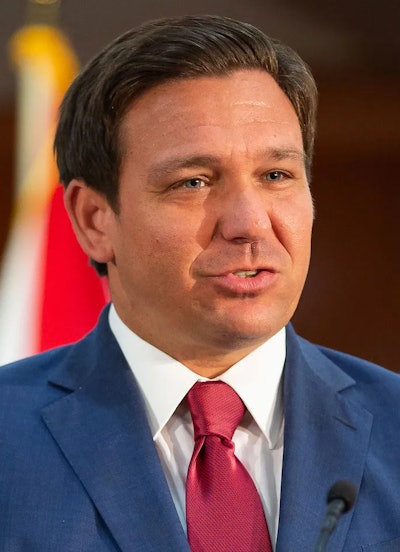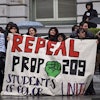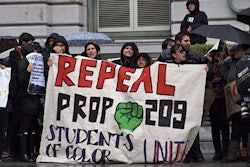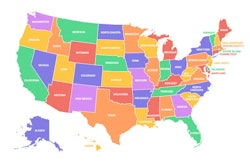Gov. Ron DeSantis announced Wednesday that he is directing Florida's Board of Governors to prohibit state universities from hiring foreign workers through H-1B visas, which allow international professionals in specialty occupations to work temporarily in the United States.
Speaking at a Tampa press conference, DeSantis characterized the visa program as "indentured servitude" and criticized state universities for relying on what he described as cheaper foreign labor. The directive comes approximately one month after President Donald Trump's administration announced a $100,000 application fee for future H-1B visas as part of broader immigration restrictions.
"I'm directing today the Florida Board of Governors to pull the plug on the use of these H-1B visas in our universities," DeSantis said. He argued that the positions should be filled by Florida residents or other American workers, particularly as domestic workers face layoffs attributed to artificial intelligence implementation and federal workforce reductions.
The governor cited examples of university employees on H-1B visas, including assistant professors, coaches, data analysts, coordinators, and marketers from countries including the United Kingdom, China, Spain, Canada, Trinidad and Tobago, Russia, Poland, Albania, Argentina, and the West Bank. He questioned why these positions, particularly in fields like mathematics and engineering, required foreign workers.
According to U.S. Citizenship and Immigration Services data as of June 30, 2025, more than 1,900 Florida employers sponsor over 7,200 H-1B visa holders statewide. Within the education sector, 78 employers sponsor 677 beneficiaries.
 Gov. Ron DeSantis
Gov. Ron DeSantis
The H-1B visa program has emerged as a contentious issue within Republican leadership circles. While figures like Trump and DeSantis advocate for reduced dependence on foreign labor, other party members argue that businesses require access to international workers to fill critical positions.
The debate over H-1B visas extends from broader discussions on immigration policy and domestic employment that characterized Trump's 2024 presidential campaign and subsequent executive actions. These have included mass deportation orders, expanded Immigration and Customs Enforcement operations, and federal funding for states supporting migrant detention efforts—initiatives in which Florida has played a leading role under DeSantis's administration.
The governor has also established a state-level efficiency initiative modeled after the federal Department of Government Efficiency, tasked with auditing state universities and local governments for waste, fraud, and abuse. Chief Financial Officer Blaise Ingoglia oversees this effort, which has been informally renamed the Florida Agency for Fiscal Oversight.
















